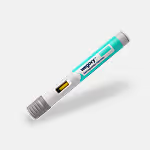Download the Felix App
Earn reward, visit our shop and get exclusive offers on the app
Download nowEarn reward, visit our shop and get exclusive offers on the app
Download nowPut your health first in 2026 with free visits on all categories, and $200 off longevity testing.
Download nowPut your health first in 2026 with free visits on all categories, and $200 off longevity testing.
Download now
AI-generated summaries may be inaccurate and do not constitute medical advice. Third-party AI tools are not under Felix's control, and your use of them is at your own risk.
There is nothing more dangerous than misinformation when it comes to managing our health and wellbeing.
In the digital age, it’s getting harder and harder to prevent misinformation from spreading, until facts can be properly checked, rechecked, and then verified by experts in that field. When information is shared by the media, before it’s been properly assessed for accuracy or given context, the results can be misleading.
This is exactly what happened with the Woman’s Health Initiative (WHI) study on Hormone Replacement Therapy (HRT) in 2002. The media drastically misrepresented the risks of using hormone therapy presented by the study, which in turn, led to panic and fear.
Most people who had been using hormone therapy to assist with their menopause symptoms stopped taking it because of this misinformation. Healthcare practitioners were then worried about putting their patients at risk. This led to many, if not most, avoiding hormone therapy as a potential treatment option.
But how accurate was the information from that study? Why is the WHI study on HRT for menopause considered controversial? Felix is here to help you understand why and how the WHI study on HRT has been debunked.
Throughout this page, you’ll learn about the flaws in the way the WHI study was framed to the public, and gain a better understanding of what its results actually mean.
First though, let’s clarify something important about the term Hormone Replacement Therapy (HRT).
Before we get into the details of the study, it’s valuable to understand the differences between the terms Hormone Replacement Therapy (HRT) and Menopause Hormone Therapy (MHT).
Menopause Hormone Therapy (MHT) is the most up-to-date terminology for this type of menopause symptom treatment. Hormone Replacement Therapy (HRT) was the original term that was used to describe this type of treatment, but it’s actually not the most accurate term for this.
Hormone Replacement Therapy makes it sound like the medication is replacing hormones to correct something unexpected. However, the truth is, hormone fluctuations during the menopause continuum is an expected part of this life stage transition.
Therefore, the modern term for this treatment has been changed to Menopause Hormone Therapy (MHT), which more accurately describes these treatments for menopause symptoms.
Anytime you hear a practitioner talk about HRT or MHT, they mean the same thing. MHT is simply the updated, more accepted term used in treatments.
SIDE NOTE: For the sake of context, this page will refer to hormone therapy as Hormone Replacement Therapy, because this information relates to the WHI study, and that’s the terminology used in that report.
There were actually a few different reasons that this study was controversial.
The first being that the study was stopped in 2002, only 5 years into the study. The results of the study were then leaked to the media, before any of this information could be peer reviewed, which is highly irregular in the medical community.
Normally, studies are peer reviewed for accuracy and potential implications, before any of the information is shared publicly. When the information was shared with the public, it was done so in a way which exaggerated the risks that had been uncovered by the study.
Not only did this make the risks sound much more prevalent than they actually are, but the findings were applied to all women at all stages in the menopause transition and to all forms of hormone therapy.
The public also wasn’t informed that the trials were always meant to be stopped at the slightest increase in breast cancer occurrence. This was a common practice at the time, but this information wasn’t shared.
In turn, the misleading data that was trumpeted through the media led to a communication catastrophe.
People stopped using their hormone therapy medications abruptly. Insurance claims dropped by 30%. When people turned to their practitioners for information, they couldn’t offer any help, since they hadn’t yet had an opportunity to review any of the data themselves and trusted the misinterpreted data from the WHI.
Worst of all, due to the fear created by this misinformation, menopause and hormone therapy in general were removed from the medical curriculum for all Canadian doctors. Even though it’s been years since the study was completed, and the information has been clarified, getting hormone therapy back into mainstream usage is still an ongoing battle.
“Hormone therapy carries risks, to be sure, as do many medications that people take to relieve serious discomfort. But dozens of studies since 2002 have provided reassurance that for healthy women under 60 whose hot flashes are troubling them, the benefits of taking hormones outweigh the risks.” - Susan Dominus, The New York Times Magazine
The study showed that there was an increase of breast cancer in 6/10,000 women (less than 0.1%). However, the way that the media framed this statistic was as a 26% increase in the chances of breast cancer occurring with hormone therapy (1 in 4!), which was nowhere near the truth.
This is because the media misinterpreted the risk as being a 26% increase for all women; instead of a 26% increase of breast cancer occurring, in women that were already at risk for the disease.
Not to mention, many of the people that took part in the study were between the ages of 60-79, despite the fact that the study was meant to be looking at the effects of hormone therapy on ‘younger’ women (i.e., women in perimenopause or the early years of postmenopause).
This was one of the biggest flaws in the WHI study, since we now know that many of the risks associated with hormone therapy increase over the age of 60.
“The increase in the risk of breast cancer, for example, could also be presented this way: A woman’s risk of having breast cancer between the ages of 50 and 60 is around 2.33 percent. Increasing that risk by 26 percent would mean elevating it to 2.94 percent. (Smoking, by contrast, increases cancer risk by 2,600 percent.)” - Susan Dominus, The New York Times Magazine
Yes, it was. Let’s look at the facts:
When you consider all these facts side-by-side, it’s clear that the WHI study on HRT for menopause was flawed. The way the information was incorrectly shared only worsened the impact of the study.
“There are few women who have absolute contraindications. For everyone else, the decision has to do with the severity of symptoms as well as personal preferences and level of risk tolerance.” - Dr. Stephanie Faubion, medical director of the North American Menopause Society (NAMS)
Yes, it is.
Health care Practitioners will always weigh the benefits of hormone therapy against the potential risks that a patient could face. They will only suggest hormone therapy when they believe the benefits outweigh the risks.
If your practitioner doesn’t believe hormone therapy is the right choice for you, they’ll be able to tell you why, and the potential risks that would prevent you from having this type of treatment.
For women that are interested in potentially starting hormone therapy, we’d recommend talking to your healthcare practitioner at Felix. They’ll be able to tell you whether they think hormone therapy is right for you, based on your health, age, symptoms, and medical history.
There are some risks associated with hormone therapy, but they all fall in the rarely occurring range of 1-10/10,000 women per year (>0.1%). Some of these risks are less when using transdermal estrogen treatments.
MHT is the most effective treatment for menopausal symptoms and has been shown to prevent bone loss.In menopausal women who start appropriately-dosed MHT prior to age 60 OR within 10 years of their last period, the health benefits outweigh the risks.
Risks of MHT are considered very rare (~1 case per 1000 to 10,000 women on MHT per year) and may include:
Again, these are all rarely occurring risks. MHT is still the one of the most effective treatments for menopausal symptoms, as well as for preventing bone loss. In menopausal women who start appropriately-dosed MHT prior to age 60, or within 10 years of their last period, the health benefits outweigh the risks.
When you realize that the risks are much, much lower than they had been presented publicly, it becomes clear just how damaging this kind of misinformation can be for modern menopause treatments.
Think of Menopause Hormone Therapy (MHT) or Hormonal Therapy (HT), the modern term for what many know as HRT, as a helper for your body during menopause. It's like giving your body a little boost of the hormones it's missing, which can make you feel a lot better.
From the intense heat of hot flashes to the discomfort of vaginal dryness, Menopause Hormone Therapy (MHT) offers a lifeline to those seeking relief. The therapy's benefits extend beyond mere symptom management, touching on aspects of bone health and mood stabilization as well.
Most people that use hormone therapy find that they get substantial relief from their menopause symptoms and enjoy a better quality of life.
Menopause is something that everyone with ovaries experiences, but it doesn’t mean you have to suffer through it. Hormone therapy is a great option to prevent menopause symptoms from impeding on your life.
Felix believes that every woman should have access to these invaluable treatments, as well as the expertise necessary to know what’s right for each person. Talk to one of our health care practitioners today, and Felix can help you get back to transitioning on your terms.
While our use of the term 'women' when talking about the menopause transition is based on existing scientific research and literature, we recognize this is not inclusive of everyone's experience. To the transgender men and non-binary folx who will experience menopause, and the transgender women who won't — know that we see you and are continuing to work toward a way to create space for everyone in this conversation.
Medically reviewed by

























